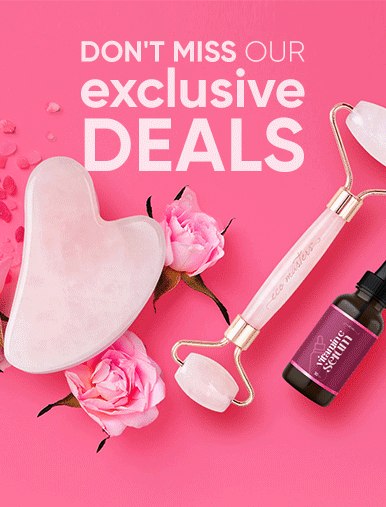1. When Does Acne Stop?
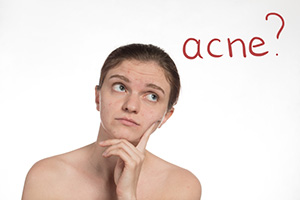
Ideally, acne stops once you cross the adolescence stage, however around 90% of teenagers in the UK between the ages of 13-19 years suffer from it. Although it stops in the early 20's for many, teenage acne needs little treatment and it’s important for it to clear early. It’s only once the hormonal levels are balanced that the signs of acne reduce. Women, however, may continue experiencing acne longer than men due to menstruation and pregnancy. A few women suffer from occasional spots or a breakout every month during their menstrual cycle.
Acne occurs in adulthood too and 25% adults are known to suffer from it. In adulthood, stress and illnesses like diabetes can contribute to acne flare-ups. This may go on longer if not addressed with the right acne solutions. With an increase in popularity for natural products, many are turning to natural supplements and creams due to lesser known side effects and ingredients that promote healthier and clear skin.
Leading a healthier lifestyle can help you take those positive steps to reduce acne. This can include following a healthier balanced diet, reducing stress levels and turning to natural products known to help with this.
2. Is Acne More Common In Men Or Women?
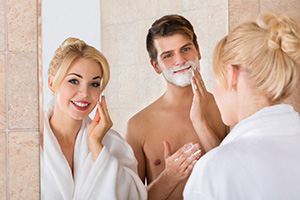
During the teenage years, boys are 10 times more likely to suffer from acne as compared to girls. This can be due to the fact that males produce more testosterone which is known to trigger off acne. As a result, boys are more likely to suffer from acne breakouts.
The situation changes during adulthood as women experience further hormonal imbalances during this period. Stress, pregnancy and menopause are the major culprits for adult acne being more common in women than men. In fact, 80% cases of adult acne in the UK occur in women. Here are some more causes of acne you must know about.
On a lighter note, acne isn’t gender biased. It occurs equally in both men and women at some stage of life.
3. Is Stress A Leading Cause Of Acne?
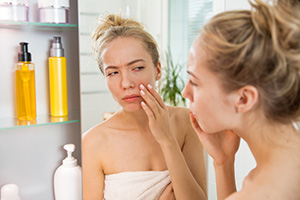
Stress manifests itself in many ways and affects your overall well being, with the skin being no exception. Several studies have correlated increased stress with acne breakouts. Stress increases the production of testosterone in the body. In case of women, this leads to a hormonal imbalance leading to acne. Therefore, stress is one of the leading causes of acne as it triggers the imbalance which is the major cause of acne in the majority of the population.
4. Can Dirty Hair Or Long Hair Give You Pimples?
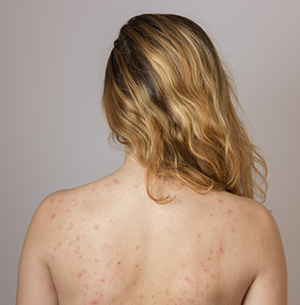
If you have long hair or a particular hairstyle that increases its contact with your skin, it may spike the chances of acne. Dirt and dust get trapped in the hair and its contact with your skin may clog pores leading to acne. Oils, creams, serums or other hair products contain harsh chemicals or ingredients that may not only block pores but also leave skin feeling irritated. In fact, frequent contact with hair is one of the main causes of back acne.
Using a mild shampoo and conditioner to wash your hair twice a week can help keep the hair clean. Minimise the use of harsh products or substitute them with herbal products to reduce acne potentially. Tying your hair when oily can also protect your skin from an acne crisis.
5. Does Consumption Of Dairy Products Cause Acne?
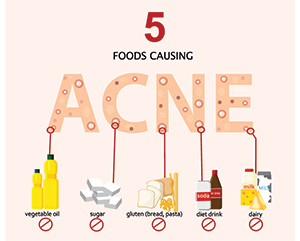
While the topic may still be up for debate, recent studies have indicated a link between dairy products and acne. Consumption of cheese, milk, butter and other dairy products spikes insulin levels in your body. It boosts sebum production which in turn may cause those dreaded acne breakouts. The IGF-1 hormone present in cow’s milk combines with testosterone in the body to increase sebum production which could lead to acne.
As a result cutting down your dairy intake could help reduce acne or at the same time could make those breakouts less frequent. If you’re finding it difficult to reduce your dairy intake, then making a few simple substitutes could help like replacing your regular milk with almond or soya milk. These small changes can help make a bigger difference when it comes to reducing acne.
6. Does Exercising Cause Acne?
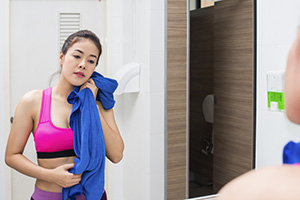
Exercising and acne don’t have any direct link. In fact, exercising regularly keeps not only the body healthy but the skin too. Exercising is known to control stress too which indirectly helps to reduce acne. However, using unhygienic gym equipment, unwashed towels or tight-fitted gym wear could trigger off acne breakouts post workout.
Tying up hair neatly, using a clean head or wristband, avoiding tight clothing, wiping off gym equipment before use, washing gym wear regularly and taking a shower after exercise can help reduce acne.
7. How Long Should I Use An Over The Counter Acne Product Before I Know It Isn't Working?
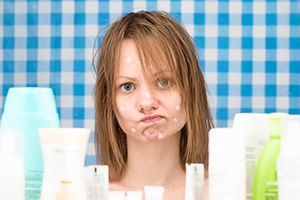
Acne products or solutions don’t show overnight results. Like any other medication, acne creams, gels or supplements take their time to adapt to your skin and work to reduce acne. While the ingredients present in these supplements may get to work immediately, the effects may be seen only after a few weeks.
Most people give up on a particular acne product within a week. Another common practice is applying it multiple times and in larger quantities than suggested. This may lead to irritation as the skin needs time to build up a tolerance for the acne product.
Alternative solutions to reduce acne may take a minimum of 6 weeks to show notable results when used as directed. This coupled with dietary changes, good skincare routine and exercise can help reduce acne issues.
8. What’s The Difference Between Pimples And Acne?
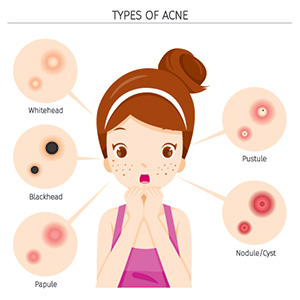
Acne is a comprehensive term for a skin condition. Acne is a condition that causes spots and inflammation on the face, neck, chest, back, underarms or other parts of the body. Pimples are a type of acne just like whiteheads, pustules, cysts or blackheads. The causes of both acne and pimples are same and pimples are a type of severe acne. Know more about the different types of acne and how to identify them
9. Should You Use A Loofah When You Have Acne Or A Breakout?
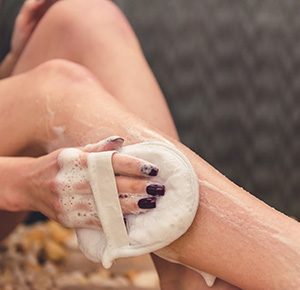
Most people assume that using a loofah can help get rid of the dry and dead skin and reduce acne. But did you know that a loofah may be a cause of acne flare-ups? The loofah is a perfect breeding ground for various types of bacteria as it’s kept away from sunlight and in damp conditions. Each time you use it, you pass these bacteria to the skin which may result in acne. If you’re already suffering from acne breakouts, using a loofah can irritate the skin and cause further inflammation. Try to avoid using a loofah if you have acne or simply allow your loofah to dry in sunlight to keep bacteria away before you use it.
10. Can Sunlight Help You Get Rid Of Acne?
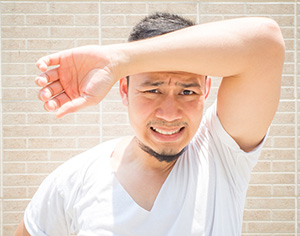
It’s an old wives’ tale that sunlight can help relieve acne breakouts but there’s no evidence to back it. In fact, the simple explanation to how sunlight may worsen acne is far more believable. Exposure to harsh UV rays and sunlight can cause dehydration. It steals the natural moisture from the skin and stimulates sebum production. This can worsen the acne breakouts and may lead to redness and blemishes.
Though sunlight may not be the direct cause of acne in all cases, it certainly aggravates the existing acne. Excess exposure to the sun may result in skin cancer too. Hence, it’s advisable to use a good non-comedogenic sunscreen when stepping out in the sun.
11. Can Shaving Aggravate Acne?
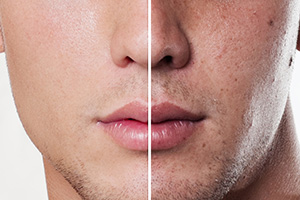
Shaving may be responsible for acne if not done properly and can aggravate the existing condition too. The shaving blades, when not cleaned properly, can cause bacteria to cultivate on it. When you shave, the skin pores open and come in contact with the bacteria on the blade leading to acne. If you already have acne, shaving works like exfoliation and irritates your skin resulting in inflammation that may make it worse.
Preparing your skin for shaving and soothing it post shave is important. It’s essential to cleanse the skin well which you can do using mild gels or shaving soaps.Use rust free razor blades and clean the blades and dry them after every use. Shaving in the direction of hair growth prevents ingrown hair and minimises breakouts too. Rinse your face with cold water after a shave and apply a good toner or aftershave with antiseptic properties.
12. How To Prevent Acne Scarring?
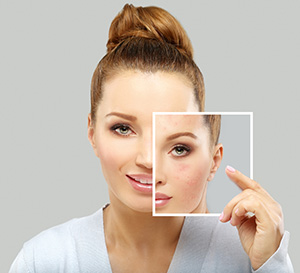
The thumb rule is to never pick, pop or squeeze acne spots. There are few inflammatory acne lesions that cause scars too. One of the best ways to prevent scarring is to start treating acne as soon as it appears. Speeding the healing process will prevent it from turning into severe acne and cause scars. Along with your acne product, you must use a scar-specific solution that can prevent blemishes too. Scars may get worse or become darker when exposed to sunlight. Hence, using a good sunscreen product suited for acne prone skin is a good idea.
Acne marks fade depending on how fast your skin heals. Herbal serums, lotions, gels, and supplements for acne scars are becoming increasingly popular with many people turning to them because they’re not harsh like their medical counterparts. For severe scars, dermabrasion and laser treatments are advised.
